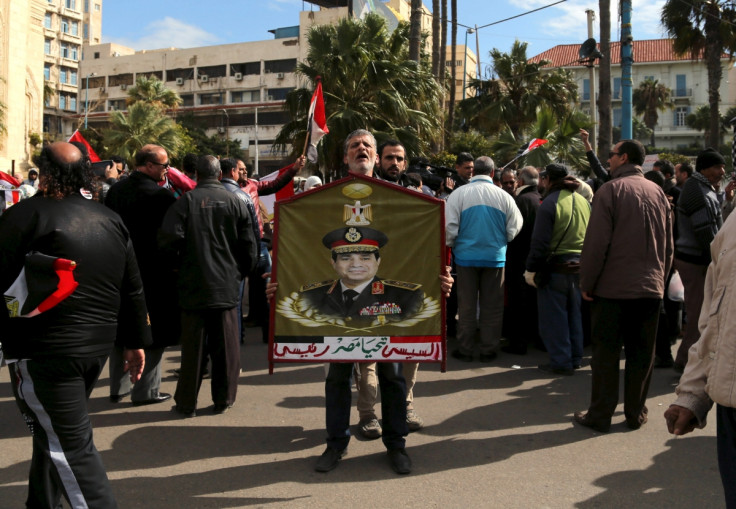Egypt: Hundreds of political activists and Sisi critics have vanished say rights groups

Hundreds of people including political activists and critics have vanished in recent months in Egypt as the government led by President Abdel Fattah el-Sisi continues to settle old scores. Many have spent weeks, if not months, in specially administered detention centres operated by the quasi-military administration.
Sisi's government has been coming down heavily on anti-government activists and opponents, rights groups say. Frequently, the government adopts what has been called "enforced disappearance" – a tactic to detain people without formal charges.
Several of them complained of torture during the period they were held in custody. "The threat to Egypt's security is real, but the past two years show that the authorities' heavy-handed response has only led to more division," said Nadim Houry, Human Rights Watch's (HRW) deputy Middle East director. "Egypt's government should learn from the country's own decades-long experience that grinding oppression can plant seeds for future upheaval."
The crackdown is part of a wider campaign led by the administration of Sisi, a former military general, against the Islamic State (Isis). Several independent bodies have also urged courts and authorities to give an explanation on the mysterious disappearances. The alleged detentions are in addition to the thousands of people who are already held under the legal judicial system.
Egypt's state-affiliated National Council for Human Rights (NCHR) recently filed a request with the interior ministry seeking a response on the whereabouts of 190 missing people. Following the ministry's response, the rights organisation said: "Regarding complaints about claims of enforced disappearances, the Ministry of Interior said that 99 of the names are held in different detention facilities pending legal cases."
Responding to the disclosures, Sherif Mohieddine, a lawyer at the independent Egyptian Initiative for Personal Rights, told the Daily News Egypt: "Whether the ministry is aware of unaware, their response is proof that security bodies are terrorising people in a systematic practice." He added the ministry's latest admission of detentions is tantamount to "confession to the crime".
According to the advocacy group Egyptian Commission for Rights and Freedoms, there have been 340 cases of people, who have vanished suddenly between August and November 2015. The list includes 11 minors. The Nadeem Centre for Rehabilitation of Victims of Violence recorded a total of 464 enforced disappearances.
"Al-Sisi's administration has made it clear that dissenting opinions will be crushed, whether by threats or force. Egypt's new parliament should exercise its democratic mandate to check these oppressive excesses," added HRW's Houry.
Egypt recently marked the fifth anniversary of its 2011 uprising, which toppled former dictator Hosni Mubarak. Ever since the upheaval, which was part of what later came to be known as Arab Spring, Egyptians have been reeling under turbulence at regular intervals.
© Copyright IBTimes 2025. All rights reserved.





















